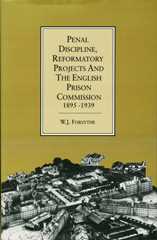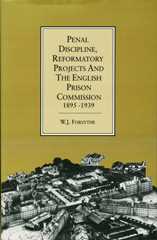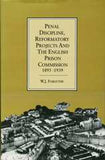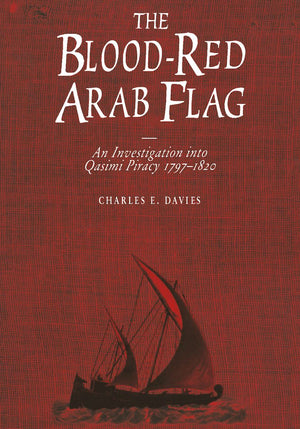University of Exeter Press
Penal Discipline, Reformatory Projects And The English Prison Commission, 1895-1939
Couldn't load pickup availability

- 264 Pages
In the early 1890s there was a prolonged criticism of conditions in English prisons and in 1895 new policies of relaxation of severity and commitment to individual reformation were recommended by the Gladstone Committee on prisons. This study examines the ideological foundations and the operational history of these new policies up to 1939. The author depicts the conditions in all sectors of the English prison system and carefully reconstructs the experience of prisoners and staff. The work of the two very influential Prison Commissioners, Sir Evelyn Ruggles-Brise and Sir Alexander Paterson, is assessed and related to the debates and policies of the Edwardian and inter-war eras.
Bill Forsythe suggests that most of the new policies must be seen within the context of a strong contemporary commitment to classical notions of jurisprudence and to ideas of social cohesion inherent in the New Liberalism of Thomas Hill Green. He argues therefore that the revisionist thesis advanced by Michel Foucault and others that modern Westerns penality has developed as a new kind of totalitarian order based on selective intervention, scientificity and expanding mental and physical control is only partly applicable to prisons of this period. More importantly, those who managed and governed prisons clung to traditional ideas of limited deterrence and moral reformation based on a plain view that criminality was, in the main, the result of moral failure and they also worked vigorously and successfully for the reduction of the prison population.
In the early 1890s there was a prolonged criticism of conditions in English prisons and in 1895 new policies of relaxation of severity and commitment to individual reformation were recommended by the Gladstone Committee on prisons. This study examines the ideological foundations and the operational history of these new policies up to 1939.
'Another fine and well written book on English penal history from W.J. Forsythe' (Labour Campaign for Criminal Justice Newsletter, No. 18, September 1993)
'This detailed account of English penal policy in the four decades following the Gladstone Committee breaks new ground in its coverage of the 1920s and 1930s, and, for the whole period, seeks to ascertain the validity of the general conclusions drawn by Foucault, Ignatieff, and Garland about power and penality'
'[...] no one will even think of reinterpreting this period of penal history without first turning to this scholarly and enthralling book.' (Mike Nellis, British Journal of Criminology, Vol. 34.3, Summer 1994)
Acknowledgments
Abbreviations in References
Introduction
The Transformation of Reformatory Theory 1820-1910
The End of an Era
Sir Evelyn Ruggles-Brise and the Prison Committee
Juvenile Adults and the Borstal System 1895-1921
Penal Servitude 1895-1921
Preventive Detention - A Tale of Disappointment 1895-1921
The Local Prisons 1895-1921
Chaplains, Educators and Visitors in English Prisons 1895-1921
Staff and Prisoners 1895-1921
Mental and Social Diagnosis in English Prisons 1910-1939
Relaxation and Reformation - A Radical Policy 1921-1939
Conflicts and Problems 1921-1939
Prisons and Prisoners 1921-1939
The Aid Societies 1895-1939
Conclusion
Index














